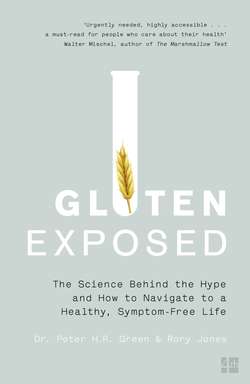Читать книгу Gluten Exposed: The Science Behind the Hype and How to Navigate to a Healthy, Symptom-free Life - Rory Jones, Dr. Green Peter - Страница 27
Clostridium Difficile and Fecal Transplants
ОглавлениеFecal transplants and certain probiotics have been proven to be effective in combating Clostridium difficile (also called C. difficile and C. diff)—a potentially deadly infection—especially its recurrence. This bacterial infection, formerly found mainly in older populations, causes diarrhea and inflammation of the colon and is increasing in younger people.
Fecal microbiota transplant is a procedure where fecal matter (stool) is collected from a healthy donor and transplanted into the affected patient, usually during a colonoscopy. The theory is to replace “good” bacteria that has been killed or suppressed by C. difficile overrunning the colon. The transplant is essentially repopulating a disturbed microbiota and—while still classified as experimental—appears extremely effective for this life-threatening condition. There are now capsules of stool extract available, and hopefully the research on the use of specific bacteria will make this therapy more palatable.
Using one kind of “natural” bacteria to combat another is well studied in this condition, and the offending pathogen is well known. This practice cannot be automatically translated to the treatment of other conditions. Researchers do not yet know which strains to select for specific physical and clinical conditions, the effect of different doses, or the effect on mechanisms or function.
Patients have reported weight gain and mood changes after receiving stool from overweight and/or “unhappy” donors. While this feedback may be anecdotal, there is some research linking changes in the microbiome and weight gain. (See chapter 9, “The Microbiome.”)
